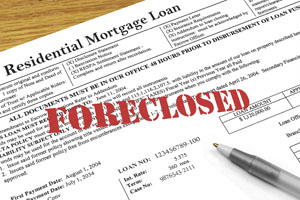
If you are facing a foreclosure, a very important question which should not be overlooked is whether your lender will be able to sue you for money owed on your loan after the foreclosure of the property.
Most people who are foreclosed upon go through a process called a Trustee’s Sale. At that sale, the foreclosed upon home is auctioned to the highest bidder. If there is a difference between the successful bid and the amount you owe on your loan, that difference is called a “deficiency” and under certain circumstances the lender may sue the homeowner for that amount.
Whether a deficiency action will be filed depends on the nature of the loan and the nature of the property. Arizona has two statutes, A.R.S. §§ 33-729 and 33-814, known as the Anti-Deficiency Statutes, designed to protect property owners from facing a lawsuit after they have lost their home. The first statute deals with “mortgages” which are a specific type of contract for the purchase of a residence. The second, and more commonly utilized statute, deals with promissory notes and deeds of trust. It is the Deed of Trust that allows the Trustee’s Sale, and most lenders prefer the Deed of Trust because, in theory, it allows for a faster, less expensive foreclosure process (for the lender that is).
If your property is 2.5 acres or less, utilized for a dwelling, is a single family or two-family residence, and if your loan was used to purchase your home (so-called “Purchase Money”), then the Anti-Deficiency Statutes will protect you from being sued by your lender. If your property does not meet those physical characteristics, or if the loan was not a Purchase Money Loan, the lender will have 90 days after the Trustee’s Sale to file the lawsuit against you.
What happens if you have two loans on the property and the first-position (or senior) loan is foreclosing? In that case, if your second-position (or junior loan) is not held by the same lender as the first-position loan, and the second position loan is not Purchase Money, the lender of the second-position loan may pursue a breach of contract action against the homeowner.
One final consideration is whether you have refinanced your home. In Arizona, if you refinance a Purchase Money Loan, the refinanced loan will be considered as Purchase Money too. If, however, when you refinance, you borrow monies in excess of the original Purchase Money Loan, the lender may pursue you for those excess monies, but only in a judicial foreclosure lawsuit, meaning that the lender will not foreclose through a Trustee’s Sale, but rather through a lawsuit filed in the Superior Court of the county where the property is located.
